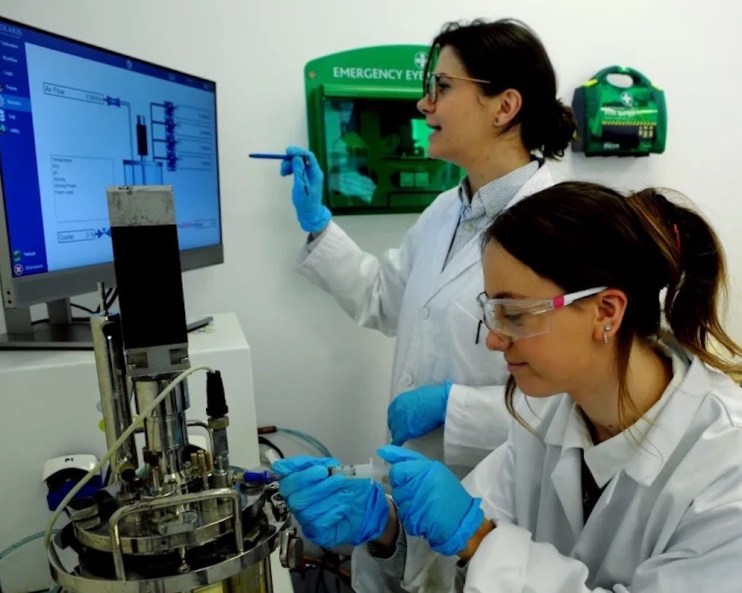How a telecoms exec, a Rugby World Cup winner and a host of chemists are plotting a quiet tech revolution

On a non-descript industrial estate on the outskirts of Cambridge, a former telecoms executive, a Rugby World Cup winner and some disarmingly intelligent chemists are plotting a revolution that could change the shape of global politics.
If that sounds overwrought, consider the phone in your pocket. The metals that make up that extraordinary piece of kit are increasingly becoming the prized natural resources of the future, with western and emerging powers competing across the world.
So it’s rather odd that – to this point – the vast majority of that tech, once used, gets chucked in a smelter. Most of Europe’s goes to plants in Belgium or Sweden; hugely environmentally unfriendly, and not particularly efficient at recovering those valued metals.
Step in Bioscope Technologies, and the aforementioned quiet revolutionaries. Chairman Phil Allington is buzzing with enthusiasm even at 9am on a Monday morning – excited by a new challenge after decades with BT.
To work out how he’s ended up in a room with me and Andrew Gomarsall MBE, the former England scrum-half known for a World Cup win and eye-catching spells with Quins and Gloucester amongst others turned tech business development supremo, one has to start at an unusual location: Britain’s telephone exchanges.
“There are hundreds of them around the country and they all need, effectively, decommissioning. That means stripping out all the kit, from wires to the circuit boards,” Allington tells me. Whilst tasked with the job at BT, he came into contact with N2S, an electronic recycling firm run by Gomarsall’s father. They stripped off the tech and recycled what they could.

It’s a successful growing business, but it’s the chemists N2S sponsored at the University of Coventry that’s led us here. They managed to answer a question: could we find a way to re-use the copper, the lead, and even the gold that’s in these millions of redundant circuit boards? Turns out the answer is yes. And that’s why we’re standing next to a series of vats in a Cambridge industrial estate, the beating heart of N2S spinoff Bioscope.
Phil breaks the idea down for an unsophisticated audience, which is welcome. Chemists sponsored and now employed by N2S and Bioscope have developed a bacteria that can eat away, gradually, at all the plastics in circuit boards, leaving metals and dust; the former to be recycled via the London Metal Exchange, the latter to be used in cheap plastics. It’s a devastatingly simple concept that has required years of fine-tuning. Founded in 2022, Bioscope is targeting the processing of 10 tonnes of circuit boards per day by 2024. That’s hopefully just the first step in a journey to a much bigger project.
“You’ve got to imagine the potential,” says Gomarsall. “Think how much tech, how many circuit boards, there are even on you right now.” Looking in my bag at two phones, a laptop, a tablet and some wireless headphones and I’m starting to see his point.
“At the moment that gets stuck in a lorry to Belgium or Sweden and thrown in a fire. We can put it in a vat and recycle it.”
At scale, that could transform the global metals market – but for now Bioscope are focussed on the recovered kit produced by N2S. The plan, and the reason for the spin-out, is that in time Bioscope would be able to take waste from the two or three other firms that do UK tech clearouts. The numbers are already impressive – in 2022 alone N2S recycled more than 247.19 tonnes of circuit boards and 277.36 tonnes of electric cable, producing 255 tonnes of copper for re-use. That’s about the same amount of copper as you’d get from 35,000 tonnes of mined copper ore.
Gomarsall believes corporates are going to start waking up to the impact of their tech on the environment, particularly with so-called Scope 3 emissions – effectively, emissions in your supply chain – soon to be a constant feature of annual reports. It’s certainly hard to argue that a fire in Belgium is a better resting place for your work phone than a green (in all senses) chemical vat.